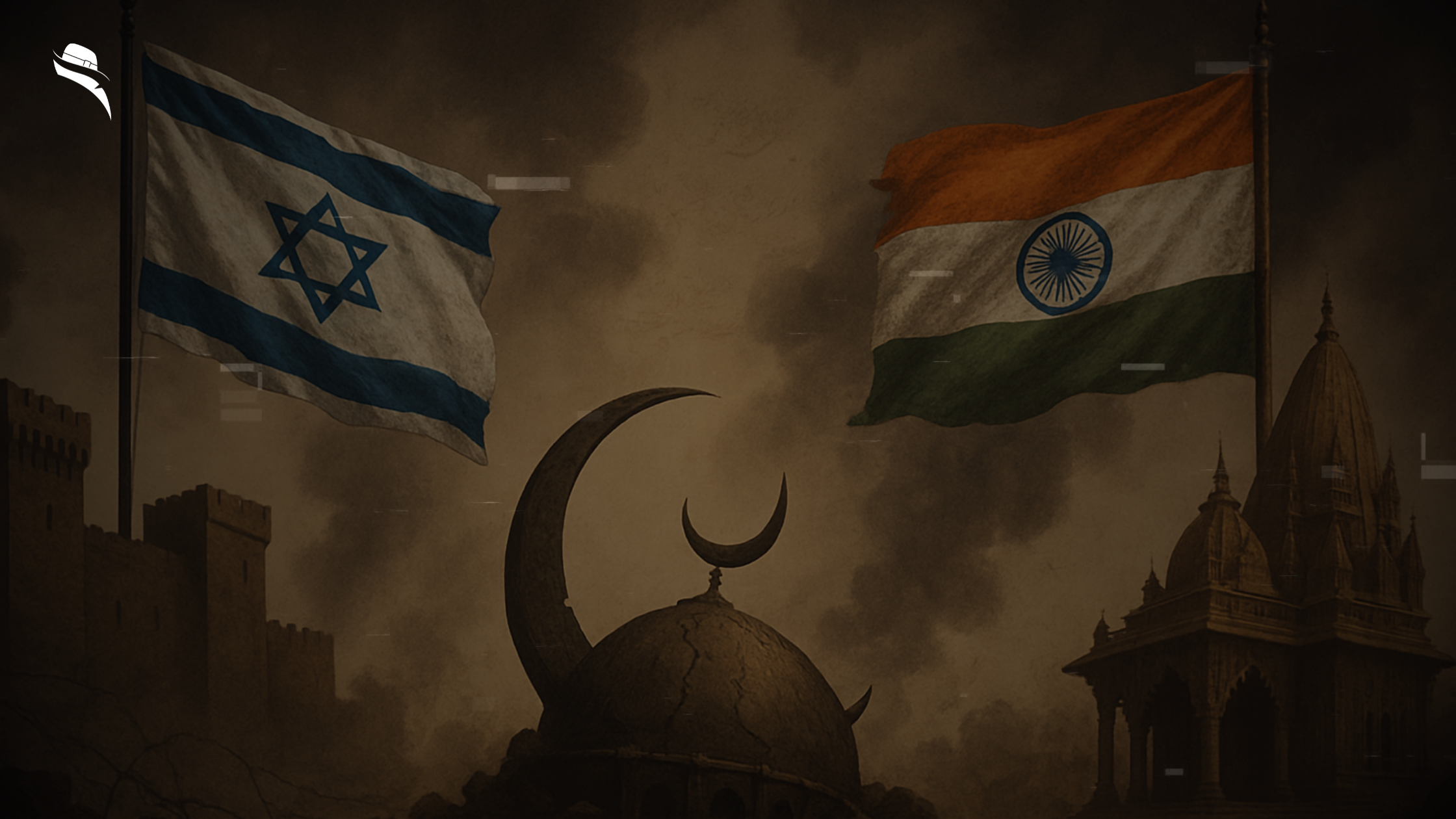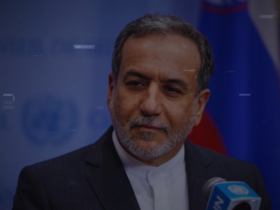The India-Israel Alliance represents a dramatic shift from India’s historical position on the Israeli-Palestinian conflict. India once stood firmly with Palestine, voting against the Partition Plan in the UN General Assembly and becoming the first non-Arab country to recognize the Palestine Liberation Organization as the sole representative of the Palestinian people in 1974. However, this relationship has transformed significantly, with India’s arms imports from Israel reaching an estimated $2.9 billion over the past decade.
This strategic partnership is fundamentally grounded in shared ideological positions. Both Zionism and Hindutva promote political philosophies that many critics characterize as anti-Muslim and Islamophobic. The fusion of racial, cultural, and religious supremacy with nationalist politics has historically led to oppressive regimes in both contexts. Furthermore, Hindutva seeks to impose a Brahminical cultural code that excludes India’s rich cultural diversity, while Zionism similarly emphasizes racial superiority. Notably, both ideologies engage extensively in “pinkwashing” to maintain international support despite their exclusionary policies.
At the heart of this growing alliance lies not just military cooperation but a deeper ideological affinity that shapes domestic and foreign policies in both nations. If this trend continues, experts warn that the U.S. risks undermining its stated values by overlooking the democratic erosion associated with these occupation policies, potentially fueling instability in regions critical to global security.
The colonial roots of India and Israel’s conflicts
Both India and Israel emerged from the ashes of British imperial rule, their modern borders carved by colonial powers whose hasty withdrawals left lasting conflicts. These shared historical origins provide essential context for understanding the foundation of their contemporary alliance.
Partition of India and Kashmir’s contested status
The British partition of India in 1947 created one of history’s largest forced migrations, with approximately 15 million people displaced and up to 2 million dead in communal violence. This catastrophic division along religious lines established a precedent of ethno-religious nationalism that continues to influence Indian politics. Kashmir, originally a princely state, became a flashpoint when its Hindu ruler signed an instrument of accession to India despite having a Muslim-majority population.
Subsequently, Kashmir’s status evolved into a permanent crisis, with India and Pakistan fighting multiple wars over the territory. The unresolved status of Kashmir provides a powerful parallel to contested territories in the Israeli-Palestinian conflict. Additionally, both scenarios feature disputes over the demographic composition of contested regions and arguments about historical claims to territory.
British withdrawal and the creation of Israel
The British Mandate for Palestine, established after World War I, set the stage for another hasty imperial withdrawal. Initially, British policy encouraged Jewish immigration through the Balfour Declaration of 1917, which supported establishing a “national home for the Jewish people” in Palestine. Yet simultaneously, Britain made contradictory promises to Arab leaders about independence.
As Jewish immigration increased during the 1930s and 1940s, particularly following the Holocaust, tensions escalated. When Britain announced its withdrawal, the United Nations proposed partitioning the territory—a plan accepted by Jewish leaders but rejected by Arab states. The establishment of Israel in 1948 triggered the first Arab-Israeli war, creating a refugee crisis with hundreds of thousands of Palestinians displaced.
Shared legacy of colonial border-making
The arbitrary borders created by British imperial policy left both regions with intractable conflicts. These shared colonial experiences have fostered diplomatic understanding between India and Israel, especially as both nations:
- Grapple with territorial disputes stemming directly from British decisions
- Contend with separatist movements challenging their sovereignty
- Face international criticism over their handling of the occupied territories
The colonial legacy has shaped both nations’ security doctrines and self-perception as states under perpetual threat. Consequently, this historical backdrop helps explain why India and Israel have found common ground despite their different trajectories after independence. Israel’s counter-insurgency tactics in the Palestinian territories have become particularly attractive to Indian security forces dealing with Kashmir.
Throughout the decades following independence, both nations have leveraged these historical narratives to justify controversial policies regarding disputed territories—a practice that has intensified as right-wing nationalist governments have gained power in both countries. Their alliance today builds upon these parallel histories of partition, displacement, and contested legitimacy, all rooted in the final chaotic years of British imperial rule.
The rise of Zionism and Hindutva as ethnonationalist ideologies
The ideological frameworks of Zionism and Hindutva emerged as powerful ethnonationalist movements in the early 20th century, fundamentally reshaping political landscapes in India and Israel through their visions of ethnic sovereignty and cultural exclusivity.
Savarkar’s vision of a Hindu Rashtra
Vinayak Damodar Savarkar, widely regarded as Hindutva’s chief architect, formulated his vision in the seminal 1923 work Essentials of Hindutva. Rather than viewing Hinduism as merely religious, Savarkar constructed it as a cultural and political identity. He explicitly defined Hindus as those who consider India both their “fatherland” (pitrubhumi) and “holy land” (punyabhumi), effectively excluding Muslims and Christians whose religious allegiances extended beyond India’s borders.
Savarkar’s Hindutva represented an attempt to unite Hindus—historically divided by caste—into a homogeneous political community bound by “common blood” and “common heritage”. Through this framework, he envisioned “Akhand Bharat” (Undivided India), a Hindu nation encompassing the entire subcontinent. Essentially, Savarkar viewed conflict with Muslims as necessary for binding antagonistic castes together, writing that “nothing makes Self conscious of itself so much as a conflict with non-self”.
Zionism’s goal of a Jewish homeland
Zionism emerged as a political movement in the late 19th century, consolidated by Theodor Herzl, who, like Savarkar, was an agnostic who viewed religious identity primarily through a political lens. Herzl’s 1896 pamphlet Der Judenstaat laid out the philosophical foundation for a Jewish state, arguing that Jews constituted a distinct nation deserving self-determination.
The movement gained international recognition through the Balfour Declaration of 1917, which promised British support for “a national home for the Jewish people” in Palestine. Zionism’s core principle—that Jews had historical rights to Palestine that outweighed Arab claims—paralleled Hindutva’s assertion of Hindu primacy in India. Indeed, Savarkar explicitly praised Zionism’s blend of “ethnic attachment to a motherland and religious attachment to a holy land” as his ideal nationalist model.
Admiration for European fascism
Both movements openly admired European fascist regimes during the 1930s. In 1938, Savarkar addressed 20,000 people in Pune, defending Germany’s right to implement Nazism and Italy’s adoption of fascism. Likewise, the Hindu Mahasabha publicly welcomed “Germany’s solemn idea of the revival of the Aryan culture”. RSS members traveled to Mussolini’s Italy, returning to establish educational institutions modeled on fascist youth organizations. Within Zionist circles, the Revisionist movement led by Vladimir Jabotinsky embraced similar aesthetics and ideologies, with its youth wing, Betar, initially wearing brown shirts reminiscent of fascist uniforms. Both movements incorporated glorification of youth, militarism, and the redemptive power of violence, creating an ideological foundation that continues to influence contemporary politics in both nations.
From covert ties to strategic partnership
Behind the public facade of diplomatic distance, India and Israel maintained clandestine military cooperation for decades before officially acknowledging their relationship. Throughout the Cold War, these two nations forged secret arms deals while maintaining divergent public positions on Middle Eastern politics.
India’s early arms deals with Israel
Even before establishing formal diplomatic relations, Israel provided crucial military support to India during conflicts with Pakistan. In 1965, Israel supplied M-58 160-mm mortars and ammunition to India. Moreover, during the 1971 Indo-Pakistani War, Israel furnished India with military equipment and intelligence. These covert exchanges continued into the 1980s, with Israel reportedly training India’s National Security Guard personnel.
The Kargil conflict of 1999 proved transformative for bilateral defense relations. Facing international sanctions after its 1998 nuclear tests, India turned to Israel for critical military supplies. Israeli-provided weapons significantly aided India in winning this conflict against Pakistan, cementing Israel’s reputation as a reliable partner willing to deliver during crises.
Normalization of relations in the 1990s
Official diplomatic ties established in 1992 marked a turning point, though political sensitivities meant defense exchanges remained largely unpublicized. As one Indian diplomatic source noted, the normalization occurred primarily because “this was the price demanded by Washington for India’s foreign policy engagement with the US”.
Initially, defense cooperation proceeded cautiously. India’s first purchases included Super Dvora Mk II fast patrol boats and Searcher UAVs in the mid-1990s. Officially, in January 2000, India and Israel signed their first defense deal for the Barak-1 surface-to-air missile system. Between 2001 and 2021, India’s purchases from Israel totaled approximately $4.20 billion.
India military ties with Israel post-2014
Under Prime Minister Narendra Modi’s leadership since 2014, the partnership has expanded dramatically. India now accounts for 37% of Israel’s total arms exports, becoming its largest arms customer, surpassing even the United States. Interestingly, Israel has become India’s second-largest arms supplier after Russia, with approximately 42.1% of all Israeli arms exports flowing to India.
The relationship has evolved from simple supplier-recipient dynamics to co-development and co-production of military technology. Key developments include:
- In 2016, Adani formed a joint venture with Israel’s Elbit Systems to manufacture Hermes 900 drones in Hyderabad
- In 2018, Adani partnered with Israel Weapon Industries (IWI) to produce various guns in Gwalior through PLR Systems
- In 2022, the countries signed a comprehensive 10-year roadmap called the “India-Israel Vision on Defence Cooperation.”
This strategic partnership provides Israel’s defense industry with a secure market after the United States blocked Israeli arms sales to China. For India, Israeli equipment has strengthened its intelligence capabilities and surveillance operations along contested borders with Pakistan and China.
Israel’s growing defense collaboration with India is part of a broader pattern in its foreign policy, where military exports serve both strategic and ideological purposes — a trend also evident in its extensive arms sales to Azerbaijan during the Nagorno-Karabakh conflict.
Anti-Muslim policies and demographic engineering
The ideological alignment between India and Israel has manifested in parallel policy approaches that disproportionately affect Muslim populations in both countries.
Revocation of Article 370 in Kashmir
In August 2019, the Indian government revoked Jammu and Kashmir’s special autonomous status by nullifying Article 370 of the constitution. This significant action removed Kashmir’s right to its own constitution and flag, alongside imposing severe security measures, including communication blackouts and mass detentions. Critics argue this move aims to change the demographic character of the Muslim-majority region by allowing non-Kashmiris to buy land there. Furthermore, with the repeal of Article 370, Article 35A was also scrapped, raising fears about engineering a “demographic shift” in the region.
The Citizenship Amendment Act and ‘Love Jihad’ laws
The Citizenship Amendment Act (CAA), passed in 2019, provides an accelerated pathway to Indian citizenship for non-Muslim religious minorities from neighboring Islamic countries. Alongside it, several Indian states have introduced so-called “Love Jihad” laws that restrict interfaith marriages. These laws have been used to arrest at least 80 Muslim men in Uttar Pradesh alone as of July 2021. Although interfaith marriage remains legal under the Special Marriage Act of 1954, city clerks often refuse to process paperwork for such couples or leak their information to extremist groups.
Israel’s Nation-State Law and settlement expansion
Israel’s Basic Law: Israel – The Nation State of the Jewish People, passed in 2018, states that “the right to exercise national self-determination in Israel is unique to the Jewish people”. This law also established “Jewish settlement as a national value”. Accordingly, Israel approved 22 new settlements in the occupied West Bank in 2023—the most extensive expansion in more than 30 years. These policies have displaced 4,527 Palestinians through demolitions.
Evacuee and absentee property laws in both states
Both countries utilize property laws that disproportionately affect minorities. Israel’s Absentee Property Law of 1950 allowed the state to confiscate property belonging to Palestinians who fled during the 1948 war. Similarly, India’s evacuee property laws, initially meant to protect migrants’ property after Partition, evolved to place restrictions on Muslims returning to India. By 1954, over one-third of Israel’s Jewish population lived on absentee property.
The role of the U.S. and global silence
Behind the growing India-Israel alliance stands the crucial support of the United States, shielding both nations from international accountability. This support forms a protective umbrella that enables both countries to pursue policies that might otherwise face greater international scrutiny.
U.S. support for both India and Israel
The United States has provided Israel with over $130 billion in bilateral assistance since its founding in 1948. Currently, Israel receives $3.8 billion annually through 2028, plus an additional $12.5 billion in direct military aid since October 2023. Regarding India, successive U.S. administrations have been reluctant to publicly criticize human rights abuses. This support continues even as both countries implement policies targeting Muslim populations.
Selective enforcement of international law
International law faces increasingly selective application. The ICC has predominantly focused on African leaders and Western adversaries, yet it rarely pursues Western powers or their allies. Western nations like the United States can refuse cooperation with international courts, undermining the principle that all nations should face equal accountability. The U.S. even imposed sanctions on ICC officials investigating American actions in Afghanistan.
Impact on global democratic norms
Given these facts, global democratic norms face serious erosion. The Biden administration initially positioned human rights as central to foreign policy but shifted priorities amid geopolitical concerns. This approach sets a dangerous precedent where power and politics override human dignity. The U.S. risks undermining its moral standing and contributing to instability in regions critical to global security.
Hence, the pattern of selective accountability creates a troubling cycle where Western powers champion a “rules-based international order” yet shield their allies from the very rules they promote.
Final Thoughts
Recent events highlight the ever-strengthening India-Israel Alliance. India promptly condemned the October 7 attack on Israel, even abstaining from UN resolutions that failed to explicitly condemn Hamas. Correspondingly, Israel praised India’s 2025 airstrikes on Pakistan as a “measured and decisive response to terrorism”.
Yet beneath this military partnership lie complex realities. For Modi’s BJP, the alliance is viewed primarily through its Hindu nationalist lens. Domestically, both governments face growing resistance—numerous Indian academics, legal scholars, plus activists actively oppose policies undermining India’s constitutional secularism.
Looking forward, this relationship remains vulnerable to political shifts. Should opposition parties gain power in India, diplomatic ties with Israel might undergo significant reevaluation. Currently, both nations aim for USD 10 billion in bilateral trade by 2025, focusing on defense, agriculture, plus technology sectors.
The international community’s response remains tepid. Throughout Modi’s tenure, the Biden administration has avoided public criticism of India’s government, still experts warn that this silence carries profound costs. By supporting both regimes without accountability, America potentially damages its credibility as a democracy advocate.
Ultimately, as both nations deepen their partnership, India risks alienating both Muslim-majority nations alongside the broader Global South, precisely as its aspirations for global leadership reach new heights.
FAQs
1. What is the India-Israel alliance, and why is it significant?
The India-Israel alliance refers to the deepening diplomatic, military, and ideological relationship between the two nations. It is significant because it marks a stark shift from India’s historical support for Palestine to a strategic partnership with Israel, fueled by arms trade, intelligence sharing, and aligned nationalist ideologies.
2. Why did India shift its stance from supporting Palestine to partnering with Israel?
India’s shift is rooted in strategic interests, including access to Israeli military technology and intelligence, as well as shared ideological narratives between Hindutva and Zionism. Since the 1990s, geopolitical realignments and economic priorities have also played a role.
3. How are Hindutva and Zionism similar ideologically?
Both are ethnonationalist ideologies promoting majoritarian dominance—Hindutva for Hindus in India, and Zionism for Jews in Israel. Critics argue that both exclude minorities, deploy militarized nationalism, and mirror colonial logic by justifying occupation and demographic engineering.
4. How much does India spend on Israeli arms?
India has spent over $4.2 billion on Israeli arms between 2001 and 2021. As of 2024, India is Israel’s largest arms customer, accounting for roughly 37% of Israel’s total defense exports.
5. How does the India-Israel alliance impact Muslim populations?
Both countries have implemented policies seen as discriminatory toward Muslims. In India, examples include the revocation of Article 370 in Kashmir and the Citizenship Amendment Act (CAA). In Israel, policies like the Nation-State Law and settlement expansion in the West Bank disproportionately affect Palestinians.
6. What role does the U.S. play in the India-Israel relationship?
The U.S. provides military aid and diplomatic backing to both India and Israel, effectively shielding them from international accountability. This includes $3.8 billion annually to Israel and continued strategic cooperation with India despite rising concerns over human rights.
7. Are Israel and India cooperating ideologically or just militarily?
The alliance goes beyond military ties. Both countries share an ideological alignment rooted in nationalism, anti-Muslim sentiment, and colonial legacies. The relationship is viewed by critics as an example of “global Islamophobia” being institutionalized at the state level.
8. What is the impact of Israel’s arms sales to other controversial regions like Azerbaijan?
Israel’s arms exports—such as those to Azerbaijan during the Nagorno-Karabakh conflict—highlight a pattern of using military trade for geopolitical leverage. These deals often reflect ideological alignment rather than purely economic or strategic logic.
9. How do colonial histories of India and Israel influence their current policies?
Both nations inherited contested borders from British imperialism, leading to prolonged conflicts: Kashmir for India and Palestine for Israel. These legacies have shaped national security doctrines and reinforced a siege mentality in both states.
10. Could India’s relationship with Israel change in the future?
Yes. The alliance is closely tied to Narendra Modi’s BJP government and its Hindutva-driven policies. If opposition parties come to power, particularly those more committed to secularism or international law, relations with Israel could be reevaluated.







Leave a Reply